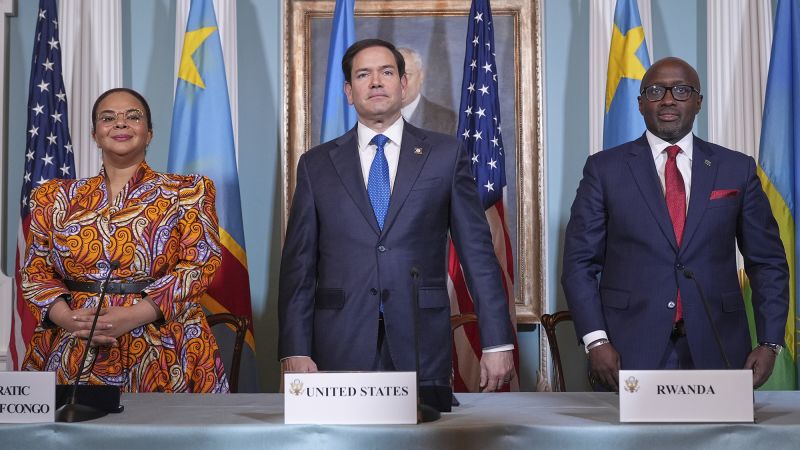DRC and Rwanda Sign US-Brokered Peace Deal Amid Deep Skepticism Over Lasting Stability
DRC and Rwanda Sign US-Brokered Peace Deal Amid Deep Skepticism Over Lasting Stability

In a significant diplomatic move, a peace agreement aimed at de-escalating the brutal conflict in the eastern Democratic Republic of Congo (DRC) was formally signed in Washington D.C. yesterday, Friday, June 27, 2025. Officials from the DRC and Rwanda, with US Secretary of State Marco Rubio presiding, inked the White House-brokered accord, which followed weeks of intense negotiations and initialing of a draft on June 18.
Despite the ceremonial signing, profound skepticism clouds the prospects for genuine peace. Many observers, including Congolese activists and analysts, remain unconvinced that the agreement, lauded by former US President Donald Trump as a “wonderful treaty,” will effectively end the complex and deeply rooted conflict. Trump, who has actively sought credit for his role, stated on Truth Social on June 20 that he would not receive a Nobel Peace Prize for this or other global peacemaking efforts.
The agreement, which includes provisions for territorial integrity, cessation of hostilities, and the return of displaced persons, notably faces a major hurdle: the M23 militia, allegedly backed by Rwanda, has not committed to laying down its weapons. The M23, a key player in the conflict, has indicated it is pursuing a separate negotiation track mediated by Qatar, raising questions about the US deal’s comprehensiveness.
The conflict in eastern DRC, rich in critical minerals vital for electronics and electric vehicles, has resulted in over 7,000 deaths and a million displacements since January. Root causes, including colonial-era border disputes, unresolved regional tensions stemming from the 1994 Rwandan genocide, and disputes over mineral wealth, continue to fuel the violence. Critics argue that without addressing these fundamental issues and ensuring accountability for all parties, including alleged external aggressors, the newly signed accord may prove to be another fragile truce rather than a definitive path to lasting peace.
Disclaimer: This content is aggregated from public sources online. Please verify information independently. If you believe your rights have been infringed, contact us for removal.